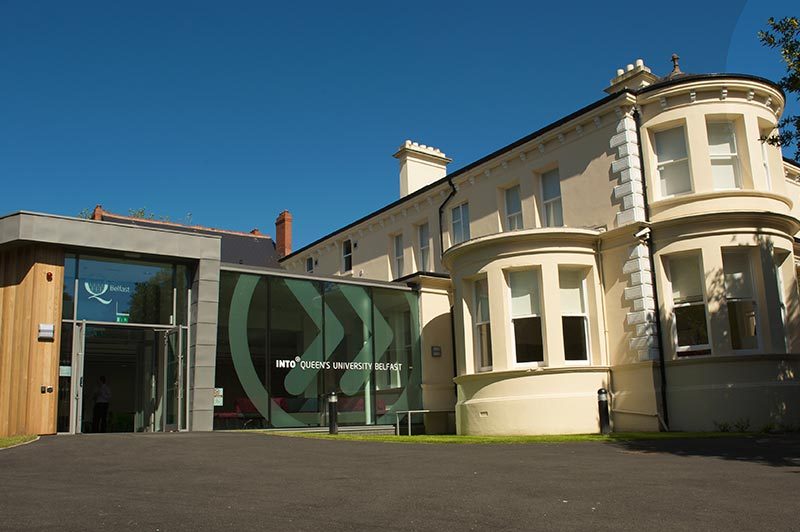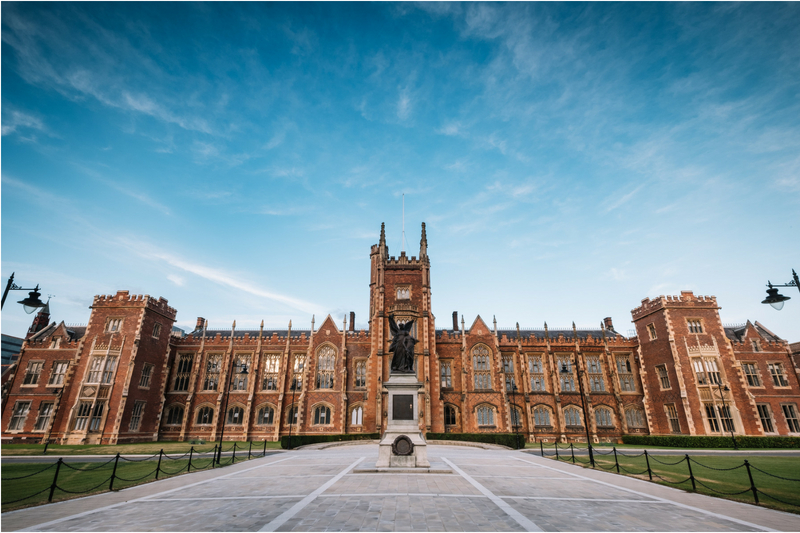Study in the United Kingdom
Home to many of the greatest minds that has walked on this earth like Sir Isaac Newton, Sir Alexander Fleming, William Shakespeare, Alan Turning, Stephen Hawking and many more, the United Kingdom is the second most popular study abroad destination welcoming 551,495 in 2020.
Resources
Discover the top 5 reasons why the United Kingdom is second most popular study destination among international students.

Pathways to UK Universities
Fast track your study in the UK with your O-level / IGCSE or if your A-Level/IB scores do not qualify for admissions to UK universities.
Discover some of the most popular UK universities international students choose to attend and where they are located.
Frequently Asked Questions
General
Most bachelor degree programs in the England, Northern Ireland and Wales are 3 years with direct honours in duration while Master degree programs are 1 year in duration. The duration for most bachelor degree programs in Scotland are 4 years.
It is important to note that some professional programs would require a master degree to be considered accredited, e.g. Master of Engineering, Master of Pharmacy, etc.
Medical programs like the Bachelor of Science, Bachelor of Surgery (abbrev. MBBS or MBChB) are 5-6 years in duration.
The Russell Group in the United Kingdom is made of up of 24 world-class, research-intensive universities. Contact us to find out more on your eligibility and pathways to Russell Group Universities.
Modern universities are universities established or granted university status after 1992. Most modern universities pride themselves on hands-on learning experiences and industry focus. Popular programs offered range from fashion design, games design, animation to allied health sciences programs.
Admissions
Direct entry to the first year of a bachelor degree programme would require a Year 12 or equivalent from a high/secondary school, e.g. A-level (most common), International Baccalaureate (IB DP), STPM, OSSD, etc.
If you do not qualify for first year entry, you may consider doing the International Year One for selected universities which is the equivalent to the first year of studies and transferring to the second year of the degree. Find out more from Pathways to Universities in the UK.
No, you would require at least a year 12 or equivalent qualification to be admitted to a bachelor degree programme in the UK.
However there are pathways like 1 year foundation programmes or A-Level in the UK that you could attend and progress to do a bachelor degree in the UK. Find our more from Pathways to Universities in the UK.
For most bachelor degree programs, you are not required to take the IELTS if you have shown competency in your English in your O-Level or IGCSE results. Programs that require clinical placements like physiotherapy, nursing etc, would require you to meet the IELTS requirements.
If you are enrolling in pathway programmes, you are likely required to sit for the UKVI IELTS (Academic) examination to fulfil immigration requirements.
The most widely accepted application portal for applying to UK universities is through UCAS. Visit the UCAS website to find out more about the application deadlines. Contact us for assistance to applying to UK universities.
There are also universities that accepts direct application. Do contact us to find out more.
This is a very popular option especially for Diploma students who are unable to afford studying and living in the UK for all 3 years. The number years to complete the degree in the UK after transferring from a Diploma is at the discretion of the university’s admissions policies. It is quite common for Diploma holders to transfer to the 2nd year or even the final year (top-up) for a bachelor degree at a UK university. Contact us to find out more about your options.
All bachelor and master degree programmes will start in September. There are limited master degree programmes that starts in January.
Pathway programmes have multiple intakes each year. Contact us for more information.
Finances
As there are over 160 universities in the UK, the tuition fee variance between universities is big. A good way is to categorise the universities. Modern Universities would range from £13,000 – £19,000 a year (non-medical). Russell Group Universities would range from £18,000 – £35,517 a year (non-medical).
We categorize between living in London or outside of London. If you are living in London, we estimate the living expenses to be £14,000 for an academic year (9 months). if you are living outside of London, we estimate the living expenses to be £11,000 for an academic year.
Yes, there are scholarships offered by the university but full scholarships are rare. The scholarship quantum ranges from £1,000 – £3,000.
If you have excellent academic results, you may wish to apply to the Chevening Scholarship or contact external scholarship bodies (public or private) in your country that may offer you full scholarships.
Student Accommodation and Dining
Most rooms are single rooms either with an ensuite toilet or communal toilet. Rooms with ensuite toilet would cost significantly more.
Most universities offer the option of staying in a catered or self-catered student accommodation. Catered options would significantly more as 3 meals a day are provided by the accommodation. Self-catered accommodation usually provides cooking facilities where students are able to prepare their own meals.
No, it is not mandatory to stay on-campus but it is highly recommended to do so or stay near the campus especially in your first year as an international student. Being unfamiliar with the surroundings as a new student, staying on-campus provides more support and security. It is also a good way to meet new friends from different races, religion and culture.
Employment
Yes. International students enrolled in a full-time degree programme can take up part-time work of up to 20 hours work a week during term time and full-time work during your vacation periods. Exceeding the legal hours may lead to revocation of your student visa and affect your academic performance.
Our advice to students is that working part-time should only be means of reducing the financial burden of your living expenses and experience work culture in the UK. It should not be thought of as means to paying your tuition fee.
As most bachelor degrees in the UK (except for Scotland) are 3 years, there are also 4 year degree programmes that include a “sandwich year”. The sandwich year is whereby students can take the academic year to do an industrial placement or internship, provided they secure one.
The sandwich year is not mandatory to meet the degree requirements and it is done after students complete the second year of their degree. After the sandwich year, students would resume their final year of their bachelor degree programme.
Do note that industrial placement or internships are not guaranteed. If students do not secure employment for the sandwich year, they can resume their final year of their bachelor degree programme.
Yes, a Graduate visa gives you permission to stay in the UK for at least 2 years after successfully completing a course in the UK.
You must be in the UK when you apply.
A Graduate visa lasts for 2 years. If you have a PHD or other doctoral qualification, it will last for 3 years.
Your visa will start from the day your application is approved.
Source: https://www.gov.uk/graduate-visa


